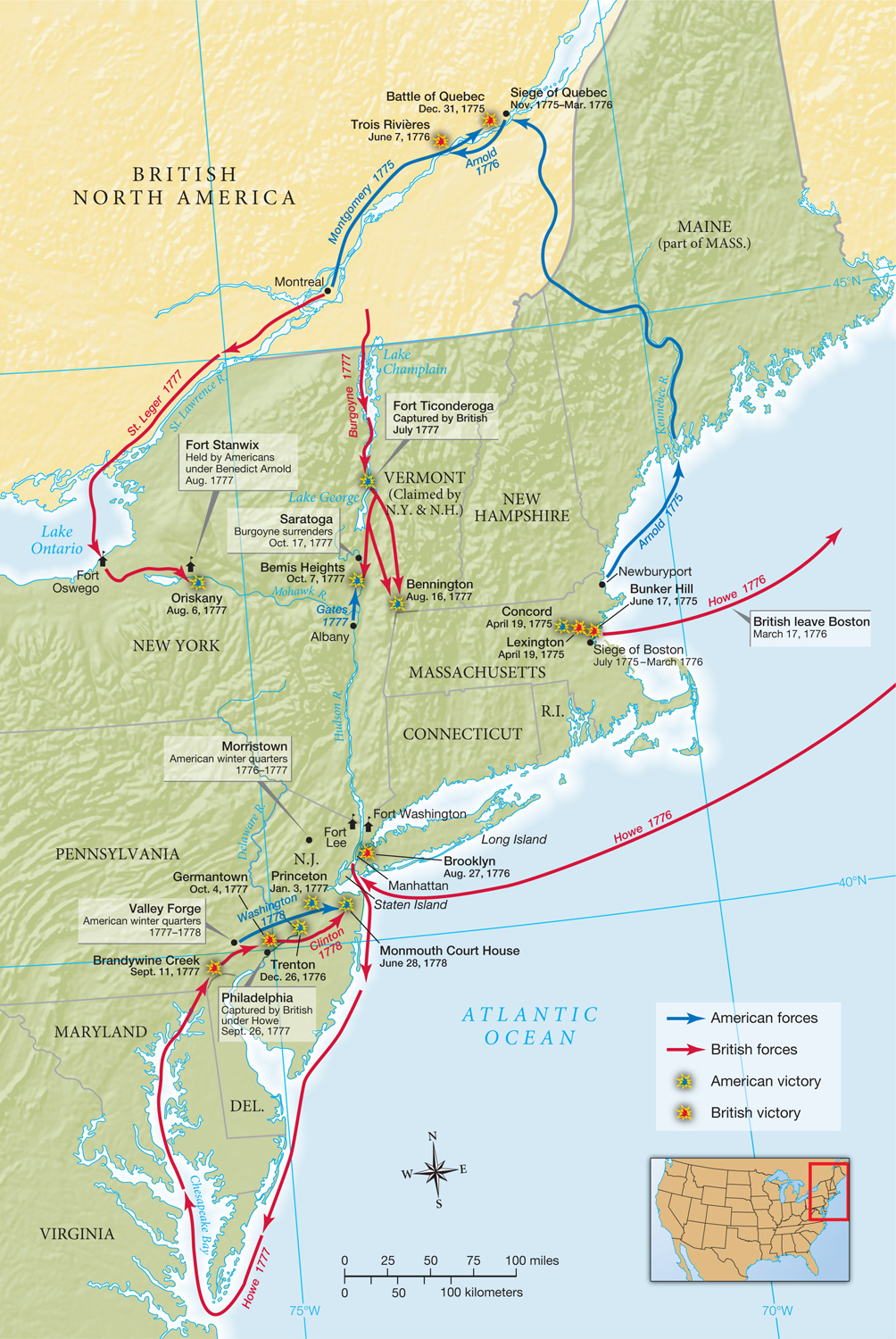The American Promise:
Printed Page 173
The American Promise Value
Edition: Printed Page 167
Quebec, New York, and New Jersey

In late 1775, an American expedition was launched to capture the cities of Montreal and Quebec before British reinforcements could arrive (Map 7.1). This offensive was a clear sign that the war was not purely a reaction to the invasion of Massachusetts. A force of New York Continentals commanded by General Richard Montgomery took Montreal easily in September 1775 and then advanced on Quebec. Meanwhile, a second contingent of Continentals led by Colonel Benedict Arnold moved north through Maine to Quebec, a punishing trek through freezing rain with woefully inadequate supplies. Arnold showed heroic determination, but close to half of his men either died or turned back during the march. Arnold and Montgomery jointly attacked Quebec in December but failed to take the city. Worse yet, they encountered smallpox, which killed more men than had the battle for Quebec.
The main action of the first year of the war came not in Canada, however, but in New York. In August 1776, some 45,000 British troops (including 8,000 German mercenaries, called Hessians) under the command of General Howe landed south of New York City. General Washington had anticipated this move and had relocated his army of 20,000 south from Massachusetts. The battle of Long Island in late August pitted the well-
Washington knew it would be hard to hold Manhattan, so he withdrew farther north to two forts on either side of the Hudson River. For two months, the armies engaged in limited skirmishing, but in November Howe finally captured Fort Washington and Fort Lee, taking another 3,000 prisoners. Washington retreated quickly across New Jersey into Pennsylvania. Again Howe unaccountably failed to press his advantage. Instead, he parked his German troops in winter quarters along the Delaware River. Perhaps he knew that many of the Continental soldiers’ enlistment periods ended on December 31, making him confident that the Americans would not attack him. He was wrong.
On December 25, in an icy rain, Washington stealthily moved his army across the Delaware River and at dawn made a quick capture of the unsuspecting German soldiers. This impressive victory lifted the sagging morale of the patriot side. For the next two weeks, Washington remained on the offensive, capturing supplies in a clever attack on British units at Princeton. Soon he was safe in Morristown, in northern New Jersey, where he settled his army for the winter. Washington finally had time to administer mass smallpox inoculations and see his men through the abbreviated course of the disease.
All in all, in the first year of declared war, the rebellious Americans had a few proud moments but also many worries. The inexperienced Continental army had barely hung on in the New York campaign. Washington had shown exceptional daring and admirable restraint, but what really saved the Americans was the repeated reluctance of the British to follow through militarily when they had the advantage.
REVIEW Why did the British initially exercise restraint in their efforts to defeat the rebellious colonies?